
On April 30, 2020 for the GLSnext Event Series, Juliet Funt, Patrick Lencioni and Dr. Henry Cloud, hosted by Craig Groeschel, provided supportive and encouraging insights for the season of uncertainty we are currently living in as a result of COVID-19 and how to navigate a new future. “We’re in an in between time,” said Dr. Cloud. “Like the moment on a trapeze when you are going from one trapeze to another.” Enjoy the notes from their rich conversation.

Dr. Henry Cloud:
CLINICAL PSYCHOLOGIST & ACCLAIMED LEADERSHIP EXPERT, LEADERSHIP UNIVERSITY
Dr. Cloud is an acclaimed leadership expert and psychologist who draws on his extensive experience in business, leadership consulting, clinical psychology and church ministry, imparting practical and effective wisdom for growing in Christ. Dr. Cloud is a New York Times best-selling author with more than 45 of his books selling over 20 million copies; his book Boundaries sold over 8 million copies, changing countless lives. For over three decades, Dr. Cloud has counseled hundreds of individuals and served thousands of churches and ministries around the globe.
All of you leaders out there, you have two jobs. You’re now a leader and a psychologist. It’s hard.
Everyone is dealing with a lot of the same things. And because people are dealing with the same thing, there are universal truths for how people function. I will give you a pilot’s checklist, and if you know these things, you can organize your leadership emphasis.
What happens to a human in a crisis?
Our minds make maps. We have a map for how life works. But when something changes, our brain registers it as an error, and in a normal situation you go back to normal, but in a crisis, it doesn’t end.
You’re perpetually in it. Everybody’s brain is apt to continue to flash and stay activated. But we need to get the brain back to normal. You can lose up to 30 IQ points just because of what is going on in your head.
And some businesses are thriving right now because they are learning things that are taking them forward in an all-new way, and it’s all dependent on how people are functioning.
We have the architecture of a person. God drew a blueprint of humans. The first thing you do when you build a house or a human is lay a foundation.
The foundation of human buildings is their sense of connectedness.
Our relational connections are knitted together, like a fabric.
People who are rooted and grounded have brains that work better. But what does a pandemic do? It blows apart all of your connections. That gets to the wiring of humans.
When you build a house, you build a slab and then you frame it. Humans need to have a frame. We operate around structure. Structure is time and place for how we function. We have routines and schedules. God wired people’s brains to work in a structure—days, nights, Sabbath, festivals, all of this has a routine.
If we don’t have routine, our physiological and neurological systems get booted. If people don’t have routine and structure, the brain goes crazy.
Humans are designed for control.
Your brain is designed to have choices. God meant us to have self-control and choices.
But what happens in a pandemic? No choices! All of our choices have gone away.
We’ve found ourselves in a context where connectedness, structure and control go away.
But we need to also be able to do things we are good at. In the pandemic, it gets lost.
As a leader and a human, what you have got to do is lead in ways that are proactively and strategically intersecting these parts of how a human is constructed.
Get anal about this. Draw concentric circles—your life, personally and professionally, you have concentric circles of relationships. You have to work in a dosage schedule for your connectedness for both your employees and your stakeholders. Think about the people that fuel you, and then work your way out.
As a leader, one of your biggest roles is communication. You have to let them know that you get it. Be empathetic, clear and authentic. Move into connection and communication. Be honest. Don’t give a bunch of hogwash. Tell them, “here is what we’re doing.” Then manage expectations.
As a leader, talk about who you’re connected to in the larger network. This gives people confidence. You don’t exist in a vacuum. Then people know they are a part of a bigger picture. You have to tell people about a longer narrative. Recognize that this is just a scene in a long movie. This helps the brain function.
You have to add structure.
We’ve got to have some meetings and a sense of routine and structure. You can do that by getting together, but you have a great opportunity. Leadership is field-dependent. Depending on what field you’re playing in, you have to lead in different styles. In chaos, you need to stand up and add structure.
Help people understand what we’re doing now and the expectations. Drive a couple big priorities—short term and long term. Structure.
Define roles and responsibilities around the team very clearly. Talk about what to expect from each other. Mutually agreed upon agreements form a structure, and people function better in structure. People calm down with boundaries.
There are 10,000 things we can’t control right now. Write them down. Worry for 10 minutes. And then we’re going to say, “God, we can’t do anything about these things. We surrender them to you.”
But then, look at the things you can control. Sometimes our brain says we can’t do anything. But yes, you can. List what you can do to drive the needle. Come alongside and serve people right now.
Remind people what they can control around priorities. Don’t let people feel powerless.
Everybody has to feel good about something they are doing.
Talk to your team about what is going right. Let your team process this too. It changes the brain chemistry when people feel like they did something that added value. All of this will affect the emotional side of people.
Remind people to name what is hard. Ask people how they are really doing.
What’s the difference between a team meeting and a small group meeting? Hopefully not a lot.
Process. Pray. Read Scripture. Talk about what helps you thrive. What are some relaxation exercises you can do?
You can’t add one minute to your lives worrying.
Leaders are psychologists. We have to help people feel connected and structured.
This is a frame in a larger movie. At the end of the movie, we know who wins. We’re in this frame, but you get to be the author. You are the author of the character called you. What do you want that character to look like? How do you want them to thrive? Then we’ll go into the next frame. What we can do right now is to set up the rest of the movie.
What’s the whole book about? Do we believe that God is in the bigger story?
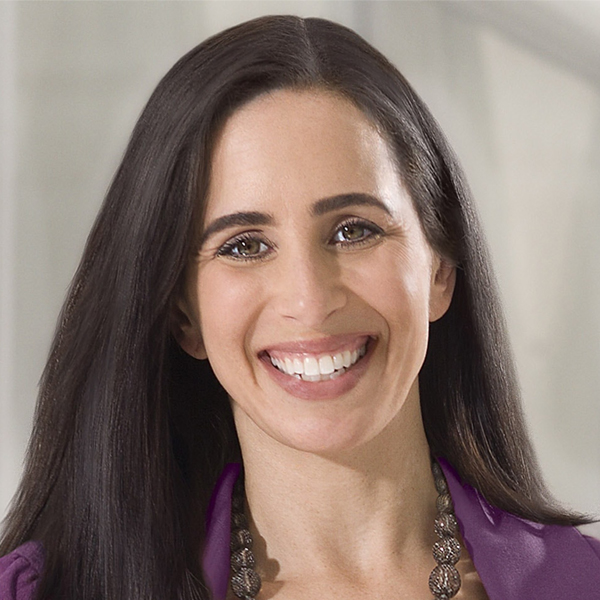
Juliet Funt:
CEO, WHITESPACE AT WORK
Juliet Funt, a recognized consultant and speaker, founded WhiteSpace at Work with the mission to unearth the potential of companies by unburdening their talent. A warrior against reactive busyness, Funt teaches a streamlined method for personal process improvement that reduces complexity in the workplace. Teams that incorporate Whitespace mindsets and skill sets increase creativity and engagement, reclaim lost capacity and execute at their finest.
I have worked from home for 24 years full-time. I want to take the work from home efficiency element of the conversation to a new level.
We have observed certain phases in this work from home transition we’ve all been in, and they are similar across industry and company size. Starting with emotion, then onslaught of technology tips and then work from home advice. But people started to gain a false sense of confidence in how to function, and learning stopped. Functional and optimized are very different.
I want to give you a repeatable work from home framework that will make you more productive.
First, I want to focus on emotion.
When you make an appointment with your stress it gives you that compartmentalization to address these feelings. I recommend it as a daily practice. I do this when I’m worried about something. I take 10 minutes a day to worry, ruminate and feel. But in the other times of the day when it comes back, it gives me permission to stop and set it aside until the morning.
Moving into the framework–set up, rhythm and closure. Let’s talk about mountain climbers.
Novice mountain climbers walk up and just start climbing.
When you watch a professional mountain climber, they see the route before they start up the mountain.
If you want a sense of comfort and control, you have to see the route.
You have to see the movie in your head before you start the workday. In the movie of your day, are you calm? Are you patient? Are you loving? It’s just a sip of reflection before you get started that changes so much.
The paper anchor is a pad that sits on your desk.
On your paper anchor sitting on your desk, write down the 5 most important things you need to address today.
Set up your day by seeing your route and creating your paper anchor. Then set your groove. And that sets your motion forward. It’s like the nicest boss you ever had.
Create a visual groove that forms an arch of effectiveness for your day.
Take this visual groove with you wherever you go. Design a visual arch on your desk. Bring the same things with you wherever you work. The similarity cues your brain that it’s time for work.
Next, we talk about rhythm.
Zoom calls have flooded our day. We need to take back our control from the rhythm that has been dictated to us. Some people take breaks, but…
A more effective system is to be more improvisational cued by your intellect and instinct by taking that good old wedge of white space. It’s a strategic pause of thoughtful time that can be inserted anywhere in your day. Insert white space into your day. Give yourself that pause.
We want to take back the control of our rhythm. Create an email-checking schedule, otherwise the addiction of checking it all day will rob you of your rhythm. Choose your intervals to check your email. And in between those times, you create deeper richer work.
Kids also play into our rhythms.
Create a kids’ parking lot. Have your kids write what they need on a whiteboard, and then every two hours address that need. And show up.
But if you have little kids at home, my heart goes out to you. The situation you’ve been given is impossible. It’s like putting you in a conference room full of bees and asking you to stay focused.
But it’s also possible that your situation of output and delivery is giving you more stress.
If you haven’t had an explicit conversation with your boss about your output and your hours, do so. If you haven’t done this, you are trying to follow an invisible path. Talk about your expectations, hours and output. And then you’ll know where you stand. Then you can create solutions.
Now let’s talk about compartmentalization.
You’ve heard a lot about compartmentalization. It’s so important for your structure.
You have to create closure by putting things into compartments.
Trap yourself by making a promise to yourself out loud to people you love. When you want to clock out, tell people that you are done with your day, or you’re taking a break. You’ve said it out loud, and you’re trapped in that public promise. Whatever you say, you’ve ‘outted’ it. You can also get a boundary buddy.
Nothing I taught you in this flow is about working from home. Efficiency is portable. And this is important, because who knows where we are going? This efficiency system goes wherever you go.
Waste is persistent.
Never have I been more worried about employees.
A study by Bloomberg says that 45% of employees say they are burnt out. And the average workday has expanded by 3 hours since COVID-19.
We need a reductive mindset.
The reductive mindset in the mathematical sense is when we habitually and structurally remove the unnecessary. We need this desperately.
When you add something to someone’s plate, are you also asking what you can take away to balance the employee’s bandwidth? We must think in this reductive way.
Ask yourself, what can I let go of? What can you do less of? Delegate? Vendor out? Reduce? And Scope?
Before COVID we had way too many emails, but now we have new email generated because we are nervous and panicked. All the anxiety is coming out of our fingertips. This new type of email is adding to what was before and looping in your other channels. What is the solution? Whitespace. That thoughtful pause before you press send. Ask yourself, is this relevant?
Another way to be reductive about email is to use the acronym WAIT. Whose Action Is This? The CC line is where a lot of email indulgence is born. An email should be request for action, not observation. We put a bunch of people in the CC line who are just observing. But if they don’t have an action on the email, you’re probably adding them for poor motive.
When you communicate over email edit like a copyeditor, and ask yourself, “what do they truly need to know?”
In the bigger picture, we are trying hard to create white space. We want to help leaders know what is happening and how to manage, and help teams know how they are holding up and how to do that better. Take an assessment to find out how your team is doing at howisyourteam.com. This will help you gage where you’re at.
I’m a hardcore optimist. In this one and only day, in my one and only life, do I want to look at fear or do I want to shine a light? I hope you always pick the latter.
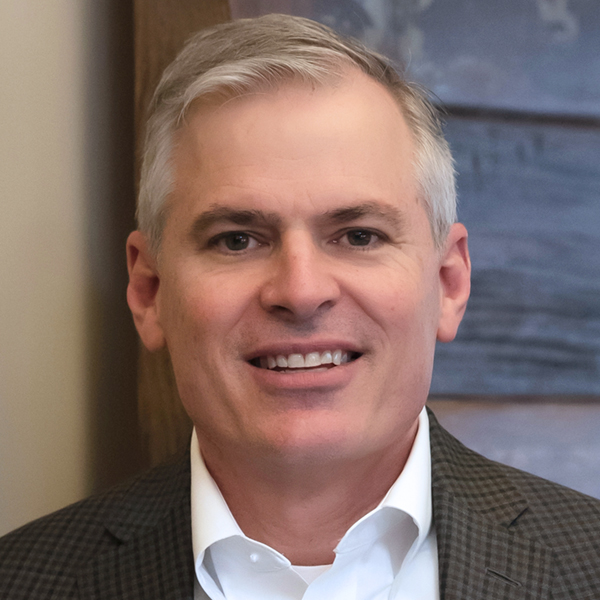
Patrick Lencioni:
BEST-SELLING AUTHOR; FOUNDER & CEO, THE TABLE GROUP
Patrick Lencioni is the author of eleven best-selling books with more than five million copies sold, including The Five Dysfunctions of a Team and his latest release, Motive. Dedicated to providing organizations with ideas, products and services that improve teamwork, clarity and employee engagement, his leadership models serve a diverse base from Fortune 500 companies to professional sports organizations to churches.
I have to address some things you guys brought up.
It seems like everyone has to have their time to have a tantrum in all of this. But I thought, have I had mine yet? But now I understand why. Because I’m swimming in connectedness. This helped me realize people’s experiences are all different.
So, how do you emerge from this? I believe every organization is going to emerge from this stronger or weaker than they were before. No one will be left unchanged. There are things leaders can do right now.
As we reemerge from this, we will have missed an opportunity if we don’t ensure we emerge stronger.
There is an opportunity to emerge stronger.
The first opportunity is to deepen the trust on your leadership teams.
In this season, you can deepen your trust or unravel. The key is to spend more time together and be personal and effective instead of professional and efficient.
Necessity is the mother of invention. In the beginning, I wanted to be more efficient, but we had to learn to be inefficient. If my team didn’t slow down and connect, we were never going to become productive in this time.
I talked to people at Southwest Airlines, the CEO spent 30 hours with all the executives to find out how they were doing. He spent 30 minutes with each of his top leaders.
People need to feel loved and cared for by their leader. We cannot overlook the human element here.
I cannot expect us to perform at our best if I’m not consistently pouring into the people I work with.
When we go back to work, are we going to take this back with us? Or are we going to back to the artificial professional boundaries we had before?
Are you pouring into your people right now, and are you going to keep doing it afterwards? Because that should be the new and better normal.
Henry: The foundation of the house is the foundation of connectedness. I’ve told the story of the monkey, where scientists stress a monkey out alone in a cage, but then they put a monkey friend in with him, and the stress goes down significantly. God designed us to connect.
Henry: When you lead with empathy, the higher regions of the brain come back–creativity, problem solving, judgement, goal orientation, impulse control… and the fear centers go down.
It’s the power of the other.
Juliet: One of the positives of the Zoom calls is a new intimacy none of us could fight. We see the imperfection. I don’t think we are going to forget that connection.
Patrick: When this is over, and we are back to “normal” I hope it is a new normal where we are checking in with each other more.
Let’s talk about Zoom calls and meetings. One of the things we found is that people were having check- ins that they were meeting, or having happy hours, but we decided the best Zoom calls are what we call hangouts. Where people work together. Let’s keep our link open and work independently and recreate the idea of being together. It’s not purely social. It’s socialized work. It’s not a meeting tool. It’s a platform for social interaction. When we went from efficient meetings to more effective relational ones, productivity went up.
Our affection for each other has also gone up. We don’t want to lose that.
Craig: I think people are more open and vulnerable in a chat online than in passing in-person. I think it’s going to be a both/and, not an either/or.
Patrick: When I meet with you from my home surrounded by my family, I’m naturally more human. My family has had more intimate connection during this time–how are we going to continue nurturing that?
Henry: I want to bring up a resource called Churches that Heal. When people that come out of this, people are going to be hurting. The program is virtual, and it helps people address the mental health issue in the midst of this crisis.
In all of this, there are blessings, and we need to appreciate and nurture those. Sometimes we don’t understand what they are until later.
There are three things I want to leave you with:
- Lean into improving trust on your team and vulnerability on Zoom.
- Create a rallying cry. You might not know the right answer. Be clear and be healthy.
- Make sure your meetings aren’t just meetings, but a platform for social interaction. Make them effective, not just efficient.
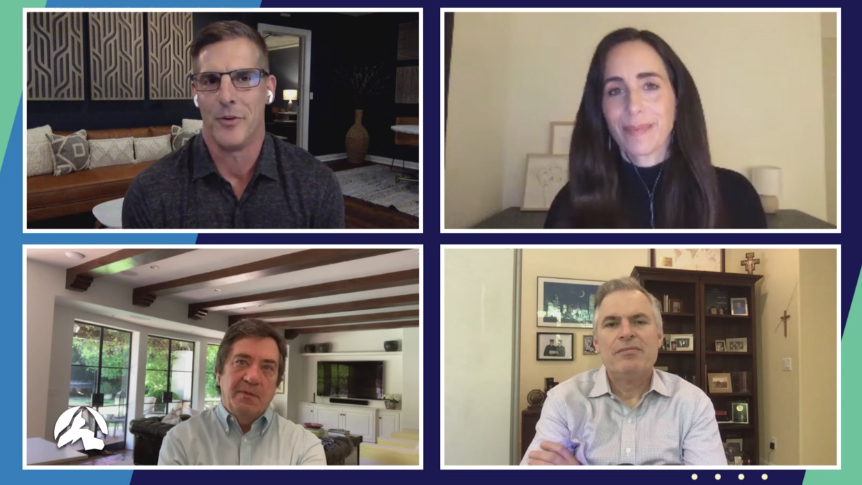
Additional Discussion:
Patrick: Give your people the opportunity to voluntarily cut their pay. And actually, their morale goes up.
Juliet: For those who have lost their jobs. There’s been a huge theme about how this is a good time for development, but I want to balance that, and say, if what you are capable of in this time is to stare at a wall or just get through the day, there has to be a container to allow for people to process that grief. Sure, make yourself a better you, but also make space for nothing and recovery.
Henry: If you have two tunics, give away one. It’s not just for charity. There may be people in your circles that need your help right now.
Patrick: God puts people in your lives for you to help. Start with those!
Watch the full video of Trailblazing in Uncertainty







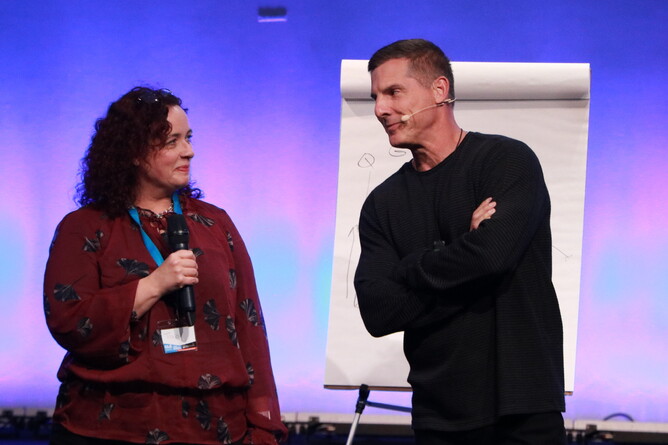
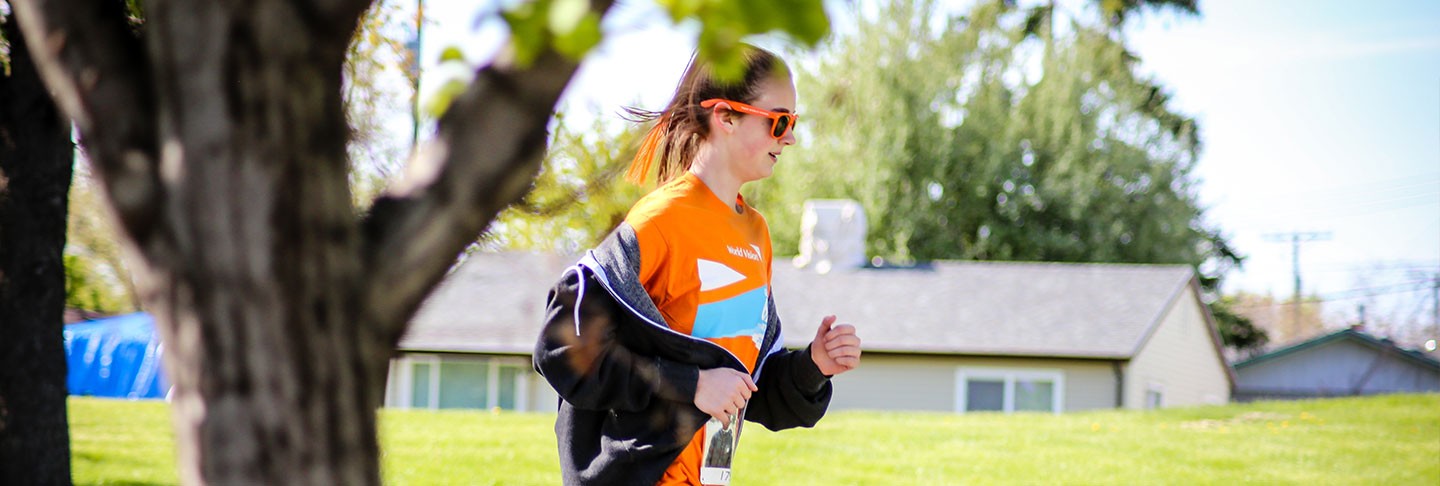


Recent Comments